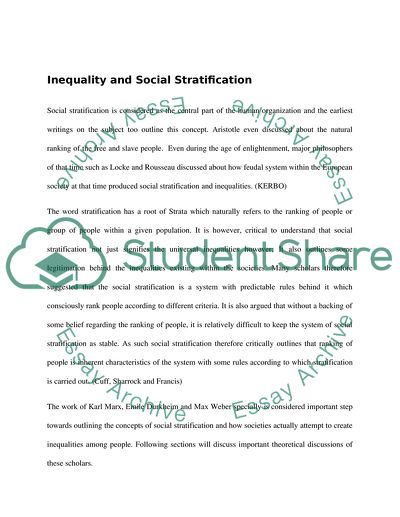Cite this document
(Inequality and Social Stratification Research Paper, n.d.)
Inequality and Social Stratification Research Paper. Retrieved from https://studentshare.org/sociology/1588952-1-is-inequality-inevitable-2-from-karl-marx-max-weber-vilfredo-parettoand-emile-durkhein-theoriesdiscuss-the-explanations-which-are-characterizing-social-class-and-stratification
Inequality and Social Stratification Research Paper. Retrieved from https://studentshare.org/sociology/1588952-1-is-inequality-inevitable-2-from-karl-marx-max-weber-vilfredo-parettoand-emile-durkhein-theoriesdiscuss-the-explanations-which-are-characterizing-social-class-and-stratification
(Inequality and Social Stratification Research Paper)
Inequality and Social Stratification Research Paper. https://studentshare.org/sociology/1588952-1-is-inequality-inevitable-2-from-karl-marx-max-weber-vilfredo-parettoand-emile-durkhein-theoriesdiscuss-the-explanations-which-are-characterizing-social-class-and-stratification.
Inequality and Social Stratification Research Paper. https://studentshare.org/sociology/1588952-1-is-inequality-inevitable-2-from-karl-marx-max-weber-vilfredo-parettoand-emile-durkhein-theoriesdiscuss-the-explanations-which-are-characterizing-social-class-and-stratification.
“Inequality and Social Stratification Research Paper”, n.d. https://studentshare.org/sociology/1588952-1-is-inequality-inevitable-2-from-karl-marx-max-weber-vilfredo-parettoand-emile-durkhein-theoriesdiscuss-the-explanations-which-are-characterizing-social-class-and-stratification.


